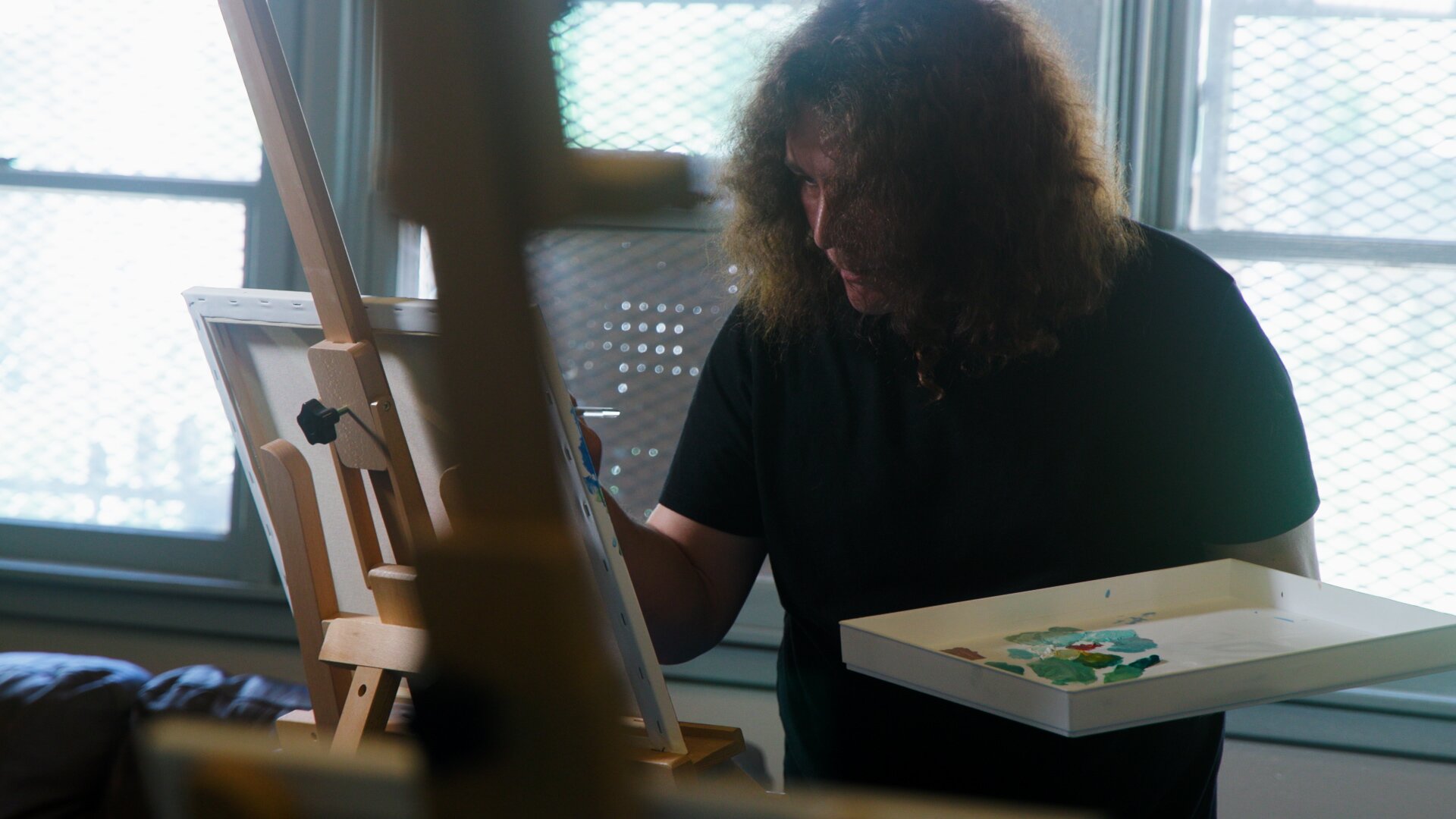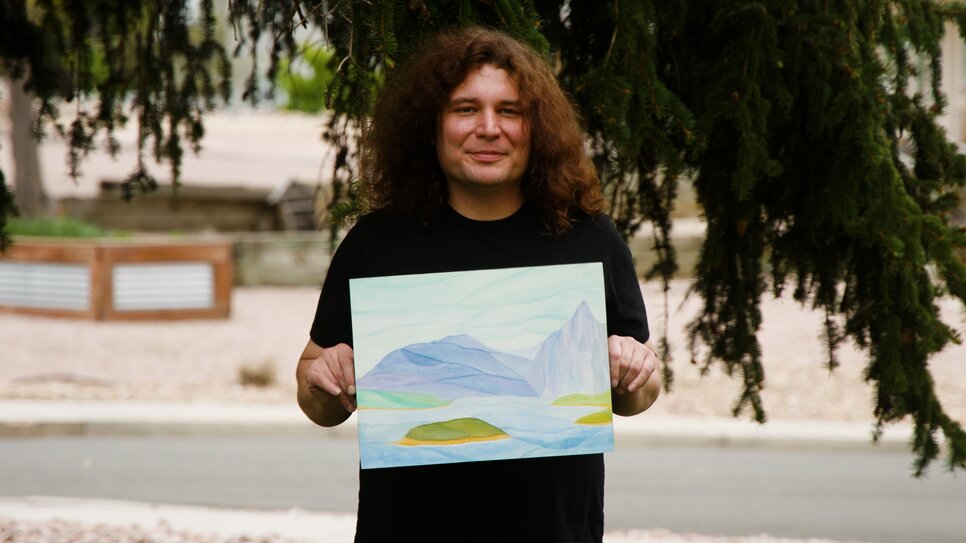Free painting workshops offer therapy to veterans
share

CASTLE ROCK, Colo. — Keith Whittaker isn’t scared of a blank canvas.
“We're hoping to connect people and to just give folks a place to express themselves through art — take a paintbrush and stick it into some beautiful colors and then throw that onto a canvas,” said Carrie Martin, a teacher and chair of the program.Lorem ipsum dolor sit amet, consectetur adipiscing elit, sed do eiusmod tempor incididunt ut labore et dolore magna aliqua.
“When I don’t have an idea of what I’m going to paint, I generally just start with a light mark, and then I’ll just kind of build from there layer by layer. It's kind of like life,” he said.
Whittaker, 43, gazed at his canvas, deciding where to venture next.
He is one of several veterans participating in the Castle Rock Artist Alliance Veteran Art Therapy Program. The program, which began in 2020, offers free painting classes to veterans and first responders.
Whittaker first began painting after serving in the Navy from 1999 to 2003. He attended the School of the Art Institute of Chicago and graduated in 2015. Eventually though, depression, anxiety and PTSD overtook him and he lost touch with his creativity.
“I joined because I wanted to serve my country and I was fortunate to have a grandfather who was a P.O.W.,” he said. Whittaker was stationed in Japan, where he worked as a helicopter mechanic. During his time there, he fell in love with Japanese culture and developed a deep appreciation for the Japanese attitude towards craftsmanship.
“Coming back to the United States was culture shock,” said Whittaker. “I had quite a few years of just getting smacked down — ACL reconstruction with arthritis, then a degenerative disc in my back, then the mental problems that came with that — the depression and anxiety from the pain.” In Chicago, Whittaker struggled to find quality care through Veterans Affairs.
“I was like, you know, I think I need to do this just so I have something pushing me where I’m doing it at least one day a week,” he said. “The smells and just the textures of the paints and just getting in there and working were just like the greatest things to me.”
Whittaker was 19 when he joined the Navy.
“I never wanted to forget that. Never be satisfied with a mediocre line. Never be satisfied with what you have because you can always do better,” said Whittaker.
In his final year of service, Whittaker was deployed to the Persian Gulf on the USS Kitty Hawk and served on a detachment to Umm Qasr, Iraq.
“I was just kind of pushing through for a long time,” he said.
It wasn’t until moving to Colorado, 20 years after leaving the Navy, that a doctor diagnosed Whittaker with post traumatic stress disorder (PTSD). The diagnosis was a huge realization for the veteran.
“[My] initial thought was that it makes a lot of sense because I'm still pretty jumpy around firecrackers and just any type of explosions,” he said.
After years without picking up a paintbrush, Whittaker’s therapist connected him with the Castle Rock Artist Alliance and told him about the art therapy program.

The word ‘therapy’ can be a bit of a stigma. So, we try to really come at that on a softer side and say, we're just helping with connections and having fun making art,” said Martin.
“Landscapes are probably my favorite subject,” he said. “I usually just try to hike as far as I can before the pain gets me, and then try to find somewhere to sit for a while and just stare and bring the image into my mind. Staring out into nature just brings so much peace.”
According to data from the U.S. Census Bureau, more than 22,000 veterans live in Douglas County. A meta-analysis from 2015 estimates that 23% of veterans who served in Iraq or Afghanistan suffer from PTSD. Although Martin describes her classes as “soft therapy,” research indicates that art can be a helpful component in coping with PTSD, by helping to address traumatic experiences non-verbally.
Whittaker said that it’s helpful to connect with other veterans because many have experienced the exact same challenges.
For Whittaker, painting provides a rare escape from his pain.

Despite the injuries Whittaker endured during his time in the Navy, he’s not bitter about his sacrifice.
Cormac McCrimmon is a multimedia journalist at Rocky Mountain PBS. Cormacmccrimmon@rmpbs.org
“Struggle creates strength. The harder you have to push yourself, the more you're going to have strength when the time comes for any situation that comes into your life. So, it's just not letting it push you down too much,” he said. “I’m grateful to find the arts — to just know that it’s okay to be different.”
